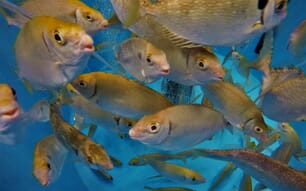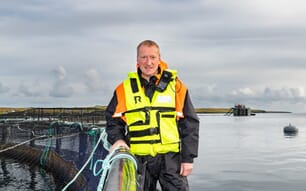Photographs of the month-old Thunnus Maccoyii fingerlings (baby fish) were released today by members of the Clean Seas team who have worked for the past decade to reproduce the breeding patterns of one of the world’s wildest fish.
The team – led by Port Lincoln-based aquaculture company Clean Seas Tuna Ltd – also includes scientists from the University of the Sunshine Coast; Fisheries Research and Development Corporation (FRDC); the South Australian Research and Development Institute (SARDI); and the Australian Seafood Cooperative Research Centre.
“These photographs and videos symbolise the depth of work our team has put into closing the lifecycle of this magnificent wild fish,” Clean Seas Chairman Hagen Stehr AO, said.
“Not only have images such as these never been seen by human eyes, but the creation of these fish has been entirely dependent on human endeavour.
“This achievement is a world first, and a major stepping stone to presenting the world with a sustainable food resource for the future. It is with confidence that Clean Seas Tuna will now accelerate the commercialisation of its achievements to grow and produce Southern Bluefin Tuna.”
Last week, Clean Seas Tuna announced:
- Continuous spawning by its captive Southern Bluefin Tuna broodstock over 35 days;
- Production of more than 50 million fertilised SBT eggs and 30 million larvae;
- Fertilisation of more than 90 per cent of eggs;
- Production of fingerlings which grew to about 2.5 cm in about 28 days; and
- Significant advances in knowledge required for the production and commercialisation of SBT as a sustainable resource.
Professor Abigail Elizur of the University of the Sunshine Coast, which has been involved in the breeding breakthrough says Clean Seas success will revolutionise the tuna industry.
“Commercially, the path is open to revolutionise the tuna industry and see captive Aussie tuna aquaculture grow to a multi-billion dollar sector.”
Mr Stehr said research and development would be ongoing, with commercialisation the next step.
“Developments such as this are of immense financial value and closely guarded but the company will endeavour to keep shareholders informed as much as possible in this exciting phase. As with all aquaculture, however, challenges always exist.”




